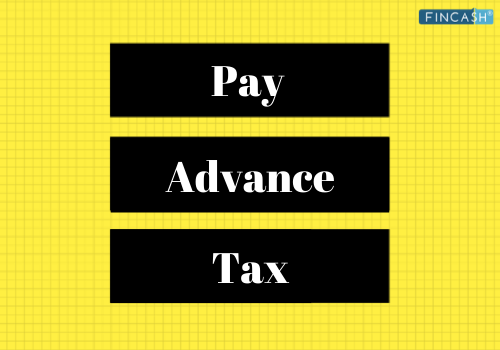What is Securities Transaction Tax?
Securities Transaction Tax (STT) is a tax levied on securities trading in India. Introduced in 2004, it ensures tax compliance and simplifies tax collection from stock Market transactions. Unlike Capital gains tax, which requires tracking profits and losses, STT is charged directly on the transaction value. This makes it an essential consideration for traders and investors, particularly those engaged in frequent trading activities.
What is Security Transaction Tax in India?
Securities Transaction Tax (STT) is a direct tax levied on the purchase and sale of securities listed on recognised stock exchanges in India. It functions similarly to Tax Collected at Source (TCS) and is governed by the Securities Transaction Tax Act (STT Act). This act outlines which securities transactions are taxable, including equities, derivatives, and units of equity-oriented Mutual Funds.
Additionally, STT applies to unlisted shares that are sold through an offer for public sale as part of an Initial Public Offering (IPO) and later listed on stock exchanges. Since STT is charged as a percentage of the transaction value, it increases the overall cost of trading. The STT Act also specifies the applicable Tax Rate, the transaction value on which it must be paid, and whether the buyer or seller is responsible for the payment.
Features of STT
STT has certain distinguishing characteristics as it was introduced to efficiently collect Taxes from the financial market. Some of the key features include:
STT charges on equity are applicable to both buying and selling of stocks.
STT charges on delivery-based transactions are higher than those on intraday and derivative trades.
STT applies only to sell trades in options and futures.
It is applicable only on recognized stock exchanges, not individual members. The clearing member is responsible for paying the sum of all STT taxes owed by trading members under them.
STT on futures is calculated based on the current market price, whereas in the case of options, it is calculated on the premium traded value.
The rate of taxation for STT is determined by the Indian Central Government.
Talk to our investment specialist
Securities Transaction Tax is Direct or Indirect?
STT is a direct tax levied on acquiring and selling securities listed on India's recognised stock exchanges. The Average Price is always used to calculate STT. It is not calculated using the First In First Out (FIFO) or Last In First Out (LIFO) algorithms.
How to Reduce Security Transaction Tax?
There is no method to minimise your STT charges because it is applied to the transaction value, and the Government of India sets the rates. The only thing to remember is that you should close off your position before expiration if you're an options trader.
STT Applicability and Rates
STT is applied to different securities transactions at varying rates. The tax is levied on equity shares, derivatives, mutual funds, and other financial instruments. Below is a breakdown of STT rates for different categories:
| Transaction Type | STT Rate (%) | Applicable On | Who Pays? |
|---|---|---|---|
| Equity shares (delivery-based) – Buy | 0.1% | Transaction value | Buyer |
| Equity shares (delivery-based) – Sell | 0.1% | Transaction value | Seller |
| Equity-oriented mutual funds – Buy | 0.001% | Transaction value | Buyer |
| Equity-oriented mutual funds – Sell | 0.001% | Transaction value | Seller |
| Intraday equity trading – Sell | 0.025% | Transaction value | Seller |
| Equity futures – Sell | 0.01% | Transaction value | Seller |
| Equity options – Sell | 0.05% | Premium value | Seller |
| Debt securities | Exempt | - | - |
STT on Mutual Funds
STT applies to equity-oriented mutual funds, which invest at least 65% of their assets in equities. It does not apply to debt mutual fund, making them more tax-efficient for conservative investors.
Impact of STT on Investors
1. Effect on Short-Term Traders
STT increases the cost of frequent trading, making intraday and derivative traders more cautious. Since STT is charged irrespective of profit or loss, traders need to Factor in this cost before making multiple trades.
2. Long-Term Investors
Long-term investors dealing in delivery-based equity trades pay STT at 0.1% on buy and sell transactions. Unlike short-term traders, long-term investors may not feel the impact as much, as capital gains tax rates are structured differently.
3. STT vs Capital Gains Tax
STT ensures that securities transactions are taxed at the source, eliminating the need for complicated capital gains tracking. However, investors still need to pay Long-Term Capital Gains Tax (LTCG) at 10% on gains exceeding INR 1 lakh, despite STT being paid at the time of the transaction.
STT vs Stamp Duty: Key Differences
While both STT and stamp duty are transaction-based taxes, they serve different purposes:
| Feature | Securities Transaction Tax (STT) | Stamp Duty |
|---|---|---|
| Levied On | Securities trading on exchanges | Transfer of securities and property |
| Who Collects? | Central Government | State Governments |
| Tax Deductible? | No | No |
| Applicability | Only on listed securities | Includes physical and unlisted securities |
Expert Opinions on STT: Fair or Needs Revision?
Many financial experts and economists have debated whether STT is justified or needs revision. Some argue that:
- STT increases trading costs, discouraging retail investors from participating actively in stock markets.
- It disproportionately affects high-frequency traders, making Intraday trading less profitable.
- A reduction in STT could improve liquidity, benefiting both traders and long-term investors.
- On the other hand, the government maintains that STT is a reliable revenue stream that ensures tax compliance in securities markets without relying solely on capital gains tax.
Recent Changes & Budget Insights
The government periodically reviews STT rates, especially during Union Budgets. In recent years:
- Budget 2023 maintained existing STT rates but focused on increasing compliance.
- There have been discussions on reducing STT on options and intraday trades to boost liquidity in the market.
- Any changes to STT are typically influenced by market conditions and the need to balance tax revenue with investor participation.
Income Tax and STT
Gains on Capital are Taxed
When the STT was implemented in 2004, a new Section 10(38) was included to help taxpayers who were subjected to STT. According to the income tax Act, any Capital Gain on the sale of shares or Equity Oriented Mutual Fund units (EOMF) subject to STT was taxed at a beneficial or nil rate for transactions completed before March 31, 2018.
While long-term capital gains (if shares or EOMF are held for more than 12 months) were tax-free, short-term ones were taxed at 15%. However, to prevent certain individuals from abusing exemption provisions by declaring unaccounted Income as exempt long-term capital gains, Finance Budget 2018 proposed to remove the long-term capital gain exemption.
It also proposed to tax long-term capital gains on equity shares and EOMF at a reduced rate of 10% for transfers made on or after April 1, 2018. In the case of transfers made before January 31, 2018, the cost of acquiring shares or EOMF before February 1, 2018, is replaced by the Fair Market Value as of January 31, 2018.
Taxes on Corporate Profits
STT paid is authorised to be deducted as a business expense in the case of a person who trades in securities and offers gain or loss from such trading as business income.
Conclusion
Each acquisition and sale of equities listed on a domestic and recognised stock market is subject to a securities transaction tax. The government determines the rate of taxation. The STT applies to all stock market transactions involving equities or equity derivatives such as futures and options. When a share transaction is completed, STT is levied. As a result, STT is quick, transparent, and effective. Non-payment, incorrect payment, and other instances of non-payment are minimised to a bare minimum because the tax is imposed as soon as the transaction occurs. However, this has the effect of increasing transaction costs.
FAQs on STT
1. Is STT refundable?
A: No, STT is not refundable, but traders can claim it as a business expense if they declare their gains as business income.
2. How is STT different from capital gains tax?
A: STT is charged on transactions, while capital gains tax is levied on profits from selling securities.
3. Does STT affect long-term investors?
A: STT is relatively low for long-term delivery-based investors and has less impact compared to frequent traders.
4. How to claim STT in ITR?
A: STT cannot be deducted while calculating capital gains tax, but traders can claim STT as a business expense.
5. Does STT apply to foreign investors?
A: Yes, STT applies to all investors, including Foreign Institutional Investors (FIIs) trading on Indian stock exchanges.
All efforts have been made to ensure the information provided here is accurate. However, no guarantees are made regarding correctness of data. Please verify with scheme information document before making any investment.












